Music licensing is one of the main sources of income for musicians. The process of licensing music may be challenging and ambiguous, and most musicians struggle to succeed in this sector of the music business without some assistance.
Lucky for you, we’re here to address any misunderstandings you might have regarding the entire procedure. Let’s get going!
People no longer purchase albums. As previously mentioned, the income of artists has changed as a result of digital music distribution. And being successful in the music industry requires more than just clever distribution, gigging, and promotion.
The most advantageous income streams for musicians wanting to make a living off of their music are no longer the traditional ones from the past (such as physical album sales).
But the music business continues to be worth billions of dollars. What is the source of all those earnings?
In such cases, you should infuse two short phrases into your memory forever if you’re asking the same question.
- Music Publishing
- Music Licensing
Seems simple right? Hang on.
The licensing and publishing processes are intricate and have many turns, bends, and dips.
Music Licensing
Through a contract known as a music license, copyrighted music can be used for commercial purposes. Copyright owners of songs are promised compensation through music licensing agreements when their music is used in things like:
- Films & Movies
- TV shows
- Video games
- Advertisements
These licenses can occasionally be granted for a certain time, such as a few months around the holidays, while other times they can be purchased altogether from the copyright owner or issued perpetually.
Why Do Licenses Matter?
From a broad perspective, all kinds of music licenses signify authorized usage of a song for a certain undertaking.
The buyer may use the music exactly as specified in the documentation with the right license. The user is unlawfully using an original work by an artist if they use it without permission or the proper authorization, and they risk legal action or lawsuit.
Understanding music licensing is crucial for both the artist’s and the user’s protection.
What’s The Difference Between A Music License And A Copyright?
A music license is a “lending license” that allows other people to use your track for a specific amount of time in exchange for a charge. Contrarily, copyrights apply to the song’s actual lyrics and recording.
So, even if you can “lend” the music through licensing, the copyright owner retains ownership of the song’s intellectual property.
What About Music Publishing?
The administration of copyrighted music that is utilized commercially is known as music publishing. A publisher is in charge of identifying licensing possibilities, collecting royalties, and allowing the public to listen to music created by the artists they represent.
Some artists handle their own publishing. It is possible in some situations, but to make it truly function, it is essentially a full-time job. The benefit of representing your own music for publishing is that you keep all of the royalties, placements, and sync fees that your song earns.
Types Of Music Licensing
In general, there are six types of licenses that someone can use for various purposes.
Synchronization License (or Sync License)
This is tailored for usage with visual media, such as TV shows, movies, advertisements, news segments, video games, and more, and is sometimes referred to as a sync license. How a song will be utilized, where it will be played, how much publicity it will receive, its experience and any additional royalty rates can all affect the licensing charge.
Mechanical License
This type of license is used to create tangible copies of songs, most frequently on CDs or soundtracks. Usually only applicable to the music itself, not to any accompanying visuals.
Public Performance License
This kind of license is quite broad and covers radio, websites, shops, dining establishments, concert halls, nightclubs, and other public areas.
Master Recording License
The receiver of a master recording license, also known as a master usage license or master license, is permitted to utilize all or some portions of the original sound recording for their purposes.
Print License
Mostly applied to the reproduction of sheet music or lyrics for karaoke, merchandising, marketing materials, and many more.
Blanket License
This license enables customers to access a selection of songs or the whole collection for a set annual charge, which might be useful for locations that only need background music, such as a cafe or a shopping mall.
Do You “Lose” the Rights to Your Music After It’s Licensed?
NO! If you’re an independent artist, you retain ownership of your original music’s property rights.
Think of licensed music as “lending” your original song to the public for a set period of time or particular media use, but you never actually sign over your songwriting credit. That is a topic to be covered in contracts with labels, which is the subject of a future blog article in its own right.
More advice on preventing the loss of your music’s rights can be found in the video below.
The Best Music Licensing Companies Of 2022
TAXI
TAXI is the best in many areas, no wonder they’re on top of the game.
They will assist you in getting your music into the hands of both big and independent record companies, TV and film producers, production music libraries, publishers, advertisements, and many other places.
Marmoset
A fantastic website with well-known clientele like Adidas, Adobe, and Microsoft. They have a collection of tunes from rigorously independent bands, artists, and record companies. They don’t want anyone to submit songs to their site, though. Their expectations are high. But this also implies that there is a strong probability you will be able to benefit from your presence if your music is selected. So if you can get on Marmoset, it is worth it.
Jingle Punks
Artists can sign exclusive contracts with Jingle Punks. They demand that every piece of music be entirely created, mixed, and mastered. Cover songs, demos, and unfinished compositions are not accepted. In addition, you are only able to share links to your tunes that are hosted on your website, SoundCloud, or Bandcamp. If you have the chance to deal with Jingle Punks, it is worth it because they have a large clientele, much like many other licensing companies on this list.
Audio Network
Audio Network has a catalog of over 100,000 carefully curated tracks, representing over 750 artists, producers, and composers.
Your strategy needs to adapt as the music biz does. The traditional methods of being compensated for your music are no longer as common as in the old days.
The future is friendly. But only if you’re smart with your music.
MPT Agency’s Final Thoughts About Music Licensing
The traditional methods of being compensated for your music are no longer as common as in the old days MPT Agency will work with you closely to enhance your strategies and adapt them as the music biz does. To find out what other services can strengthen your musical career, make sure you check our blog regularly and follow us on Instagram for more music marketing-related updates.
Subscribe To Our Music Marketing Newsletter!
News about music marketing strategies to the music business and beyond.
Delivered to your inbox once a week.





